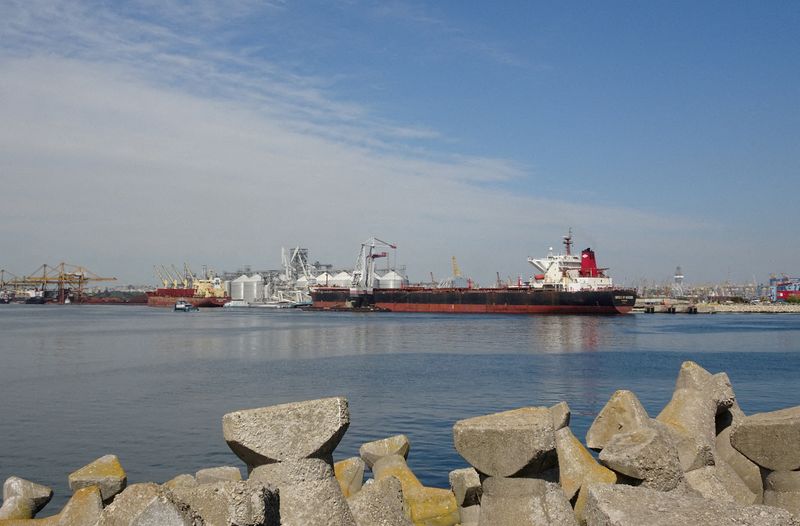By Michelle Nichols
UNITED NATIONS (Reuters) -The United States has been told that Russia is prepared to return to talks on a deal that had allowed the safe Black Sea export of Ukraine grain, but "we haven't seen any evidence of that yet," the U.S. envoy to the United Nations said on Tuesday.
Russia quit the deal on July 17. U.S. Ambassador to the U.N. Linda Thomas-Greenfield said that if Russia wants to get its own fertilizer to global markets and make agricultural transactions "they're going to have to return to this deal."
"We have seen indications that they might be interested in returning to discussions. So we will wait to see whether that actually happens," she said at a press conference, without giving further details.
Moscow has said that if its demands to improve its own exports of grain and fertilizer were met it would consider resurrecting the Black Sea agreement, brokered in July 2022 by the U.N. and Turkey to help ease a global food crisis following Russia's invasion of Ukraine.
"Moscow is ready to return without delay to the grain deal. But after the conditions for Russia are fulfilled," Kremlin spokesman Dmitry Peskov reiterated to RIA state news agency on Tuesday.
Russia's grain and fertilizer exports are not subject to Western sanctions but Moscow has said restrictions on payments, logistics and insurance have been a barrier to shipments.
U.N. Secretary-General Antonio Guterres met a week ago with Russia's Deputy Foreign Minister Sergei Vershinin - who led Moscow's negotiations to agree the Black Sea deal - on the sidelines of a U.N. food systems summit in Rome.
"Had there been a breakthrough, I think it would have been shared with you," U.N. spokesman Stephane Dujarric said on Friday.
After withdrawing from the Black Sea pact Russia began targeting Ukrainian ports and grain infrastructure on the Black Sea and Danube River and global grain prices spiked.
Russia has also threatened to target Ukraine-bound civilian vessels, prompting Kyiv to responded by announcing similar measures against vessels bound for Russia or Russian-occupied Ukrainian territory.
Nearly 33 million tonnes of Ukraine grain was exported under the Black Sea deal. Ukraine and Russia are both leading grain exporters.
"The Secretary-General is continuing his efforts to find a path forward to bring the Russians back into the deal," Thomas-Greenfield said, noting that part of the deal was "to provide some support for Russia's fertilizer to get to the market."

"If they're not in the deal, that part of the deal is no longer working," she said.
The accord allowed for the export of Russian ammonia - a main ingredient in nitrate fertilizer - via a pipeline to the Ukrainian port of Odesa. But the pipeline has lain idle since the start of the war and was then damaged in June.